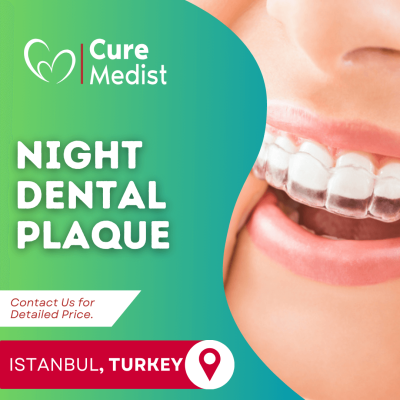“Night dental plaque” typically refers to the accumulation of dental plaque on the teeth and gums during the night while a person is sleeping. Dental plaque is a sticky, colorless film of bacteria that forms on the teeth, especially after eating sugary or starchy foods. If not removed regularly through proper oral hygiene practices like brushing and flossing, plaque can harden into tartar (also called dental calculus), which can lead to dental problems such as cavities, gum disease, and bad breath.
During sleep, saliva production decreases, and the mouth becomes drier. This reduction in saliva flow can contribute to the growth of bacteria and plaque on the teeth and along the gumline. Additionally, nighttime habits such as snacking before bed without brushing afterward can further increase plaque accumulation.
To prevent night dental plaque buildup, it’s essential to maintain good oral hygiene habits, both during the day and before going to bed. This includes brushing teeth thoroughly for at least two minutes using fluoride toothpaste, flossing between teeth to remove plaque and food particles, and rinsing with an antiseptic mouthwash if recommended by a dentist. Additionally, avoiding sugary snacks or beverages before bedtime can help reduce plaque formation during the night. Regular dental check-ups and cleanings are also important for removing any plaque or tartar that may have accumulated despite good oral hygiene practices.
Bruxism, commonly known as teeth grinding or clenching, is a condition characterized by the involuntary grinding, gnashing, or clenching of teeth. It often occurs during sleep, but it can also happen during waking hours. Bruxism can lead to various issues such as tooth wear, jaw pain, headaches, and even damage to the teeth and surrounding structures.
There are two main types of bruxism:
- Awake bruxism: This type occurs when a person is awake and aware of their teeth grinding or clenching. It often happens during periods of stress, anxiety, concentration, or even as a habit without any apparent cause.
- Sleep bruxism: As the name suggests, sleep bruxism occurs during sleep and is usually unconscious. It can be accompanied by other sleep disorders like sleep apnea and may be linked to factors such as stress, anxiety, misaligned teeth, or sleep disturbances.
The exact causes of bruxism aren’t fully understood, but it’s believed to involve a combination of factors including stress, anxiety, misaligned teeth, sleep disorders, lifestyle factors, and genetics. Treatment for bruxism often focuses on addressing underlying causes, managing symptoms, and protecting the teeth from further damage. This may involve techniques such as stress management, relaxation exercises, behavior therapy, dental appliances (like mouthguards or splints), and in some cases, medication or therapy for underlying sleep disorders.





